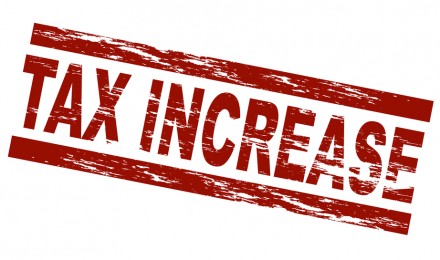There are currently about 30 million credit reports out there that show items in collection. This means that 15% of those who have a credit report are unable to pay on at least a portion of the debt they have. Surprisingly, however, is that the median amount owed is a mere $1,400. But what this means for the debt collection agencies is that there is a lot of money to be made simply by pursuing these debtors: to the tune of over $12 billion every year. Most of the time the collectors are fair and honest, but too often they are intimidating and illegal.
It all begins when a consumer takes out a loan, and they are unable to pay it back. After a set number of missed payments (often 3 months worth) the bank or lender will either send their own debt collectors after the individual, or more often than not they will write off the debt and sell it to an outside collector. This collections agency may buy the $1,400 debt for just $500. This gives them the room to negotiate the terms and the amount that the borrower must pay back. There are some pretty strict rules that must be followed by debt collectors, and most of the collections agencies do a good job staying within their bounds. However, a few bad apples will give the whole industry a bad name.
If you were to read through the list of rules that a debt collector can and cannot do, you would find many are just common sense and common courtesy. For instance, they cannot threaten action that they have no authority to follow through on. This means a collector cannot threaten to arrest the debtor (we do not live in the 1800’s, there are no longer debtors’ prisons). The collector cannot fudge names and amounts to make the debt sound better or worse than it actually is, and they cannot promise to waive or forgive a debt with no intention to do so. When a payment is made on the debt, they must post the payment and credit the account immediately, and not try to collect late fees by delaying the process. The list goes on, but you get the point: treat the customer like a human being that has fallen on hard times.
Out of the approximately 4,500 debt collectors, the Consumer Finance Protection Bureau (CFPB) monitors 175 of them. These 175 collectors make up 60% of the business. They will most often follow the rules and debts will be paid or forgiven without too much trouble. However, the consumer does have rights when they are dealing with a particularly troublesome collector. Recently the CFPB has made available stock letters that the consumer can customize and send right to the collector in order to make their lives easier. The letters can be found on their debt collection factsheet, and they open up as simple Word documents.
Being in debt is not any fun. Being in debt and being unable to pay for that debt conjures of feelings of negative self-worth and only causes the borrower to slump even further into depression and often more debt. Bring in a debt collector that is pushy and rude and the bad situation will only get worse. However, these are businesses that are monitored and must follow certain rules. The CFPB is there to help make sure the consumer is treated fairly. If you are in debt and that debt is in collections check out how the CFPB can help you. If your debt is low (and odds are it is) then perhaps it would be easiest just to earn some money on the side and get it paid off.
There are currently about 30 million credit reports out there that show items in collection. This means that 15% of those who have a credit report are unable to pay on at least a portion of the debt they have. Surprisingly, however, is that the median amount owed is a mere $1,400. But what this means for the debt collection agencies is that there is a lot of money to be made simply by pursuing these debtors: to the tune of over $12 billion every year. Most of the time the collectors are fair and honest, but too often they are intimidating and illegal.
It all begins when a consumer takes out a loan, and they are unable to pay it back. After a set number of missed payments (often 3 months worth) the bank or lender will either send their own debt collectors after the individual, or more often than not they will write off the debt and sell it to an outside collector. This collections agency may buy the $1,400 debt for just $500. This gives them the room to negotiate the terms and the amount that the borrower must pay back. There are some pretty strict rules that must be followed by debt collectors, and most of the collections agencies do a good job staying within their bounds. However, a few bad apples will give the whole industry a bad name.
If you were to read through the list of rules that a debt collector can and cannot do, you would find many are just common sense and common courtesy. For instance, they cannot threaten action that they have no authority to follow through on. This means a collector cannot threaten to arrest the debtor (we do not live in the 1800’s, there are no longer debtors’ prisons). The collector cannot fudge names and amounts to make the debt sound better or worse than it actually is, and they cannot promise to waive or forgive a debt with no intention to do so. When a payment is made on the debt, they must post the payment and credit the account immediately, and not try to collect late fees by delaying the process. The list goes on, but you get the point: treat the customer like a human being that has fallen on hard times.
Out of the approximately 4,500 debt collectors, the Consumer Finance Protection Bureau (CFPB) monitors 175 of them. These 175 collectors make up 60% of the business. They will most often follow the rules and debts will be paid or forgiven without too much trouble. However, the consumer does have rights when they are dealing with a particularly troublesome collector. Recently the CFPB has made available stock letters that the consumer can customize and send right to the collector in order to make their lives easier. The letters can be found on their debt collection factsheet, and they open up as simple Word documents.
Being in debt is not any fun. Being in debt and being unable to pay for that debt conjures of feelings of negative self-worth and only causes the borrower to slump even further into depression and often more debt. Bring in a debt collector that is pushy and rude and the bad situation will only get worse. However, these are businesses that are monitored and must follow certain rules. The CFPB is there to help make sure the consumer is treated fairly. If you are in debt and that debt is in collections check out how the CFPB can help you. If your debt is low (and odds are it is) then perhaps it would be easiest just to earn some money on the side and get it paid off.







